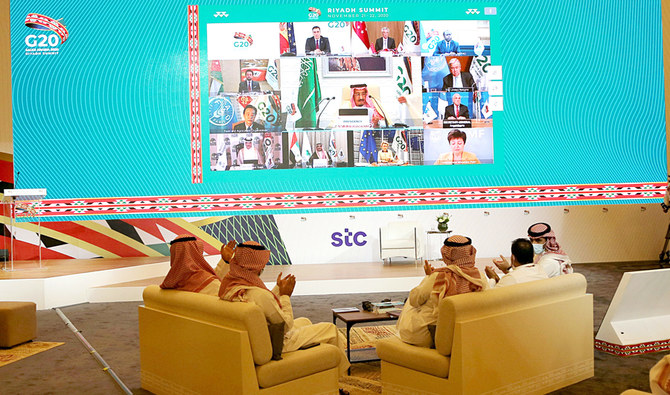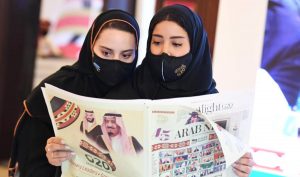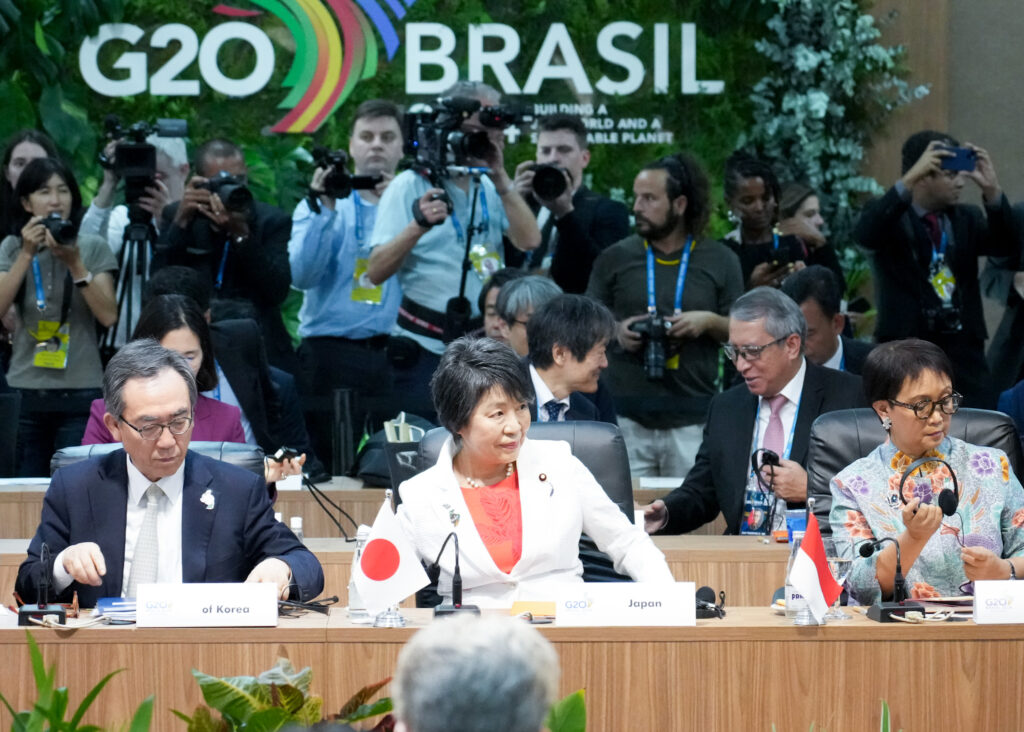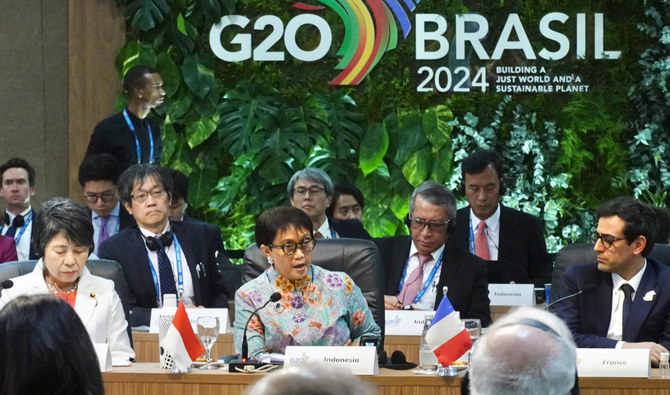If there ever was one issue requiring global cooperation and which is taking us well into the 22nd century, it is the environment and climate change. It was the big global topic before the pandemic struck and was somewhat on the backburner after that.
The side event, “Safeguarding the Planet — the Circular Carbon Economy Approach,” was important in that context: King Salman was joined on the virtual stage by leaders from the world’s most populous countries, as well as Japan, Australia, the US and Italy, which holds next year’s G20 presidency.
The king stressed that it was critical to safeguard the planet and that “we must create the conditions conducive of robust, inclusive, balanced and sustainable economies.” He explained the concept of the circular carbon economy, which aims to reduce, reuse, recycle and remove carbon from industrial processes and energy production.
The leaders may have their own views on how to safeguard the planet, however they needed to work together to do so. In the words of China’s President Xi Jinping they needed to “work together for a clean and beautiful world.” The final communique endorsed the circular carbon economy.
What it means for the world
The G20 highlighted once more the importance of multilateralism and working together. There is no way that the multilateral lending agencies could have achieved the debt service suspension initiative without the support of the global heavyweights of the G20.
The $11 trillion worth of stimulus fiscal and monetary stimulus packages also necessitated close cooperation at the G20 level.
The collaboration on the ACT accelerator and GAVI would also not have been possible to that degree without the G20. This holds especially true with regard to future support and funding of the WHO.
It is to the credit of the Saudi presidency that it did not let its theme of “Realizing Opportunities of the 21st Century for All” be derailed by the pandemic, which could have happened all too easily.
Instead, the G20 addressed other major issues such as the future of education and climate change.
What it means for GCC
It was important for the Arab world that one of their own, Saudi Arabia, the only Arab member of the G20 and one of only three Muslim majority countries in the club of the world’s most powerful nations, hosted the summit. In the words of King Salman: “Due to its unique stature regionally and internationally, and its unique location which interconnects three continents and lies at the intersection of emerging and developed markets, the Kingdom will continue to play a key role within the G20 to achieve global cooperation and find solutions to the world’s most pressing challenges.”
The focus on education is important to GCC, the whole Arab world, and many developing countries, because they have huge and growing young populations. If education cannot be provided on a sustained basis, due to COVID-19 restrictions, the world risks losing a generation.
Climate change and the environment are the defining global issues. They are especially important to a major energy producer such as Saudi Arabia, which has to address the conundrum of uninterrupted energy supplies to the world to ensure economic stability while safeguarding the planet. To that end, it was important that the Kingdom could present its approach on the circular carbon economy.
It was a testament to the G20 presidency of Saudi Arabia that the leaders’ declaration was unanimously accepted, which is never a given at these gatherings.























